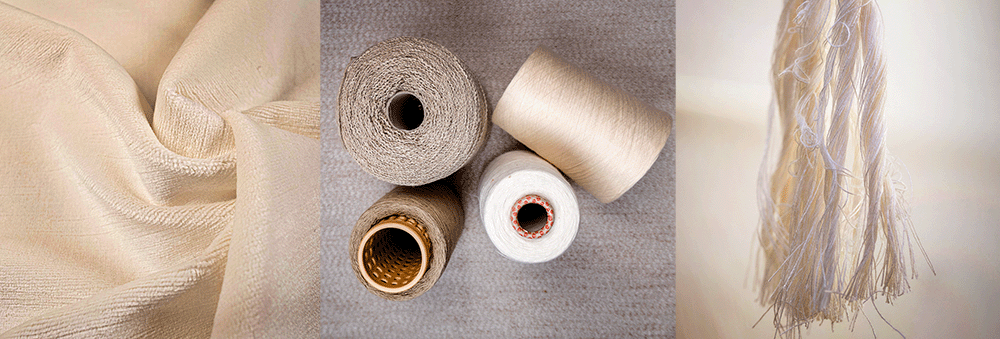"A New Ethic in Dressing and Furnishing"

We are pleased to announce the official birth of the Slow Fiber Network, born from the collaboration between Slow Food Italia and sixteen virtuous textile companies. It represents a concrete example of positive change that stems from a sustainable production process aimed at creating beautiful, healthy, clean, fair, and durable products, respecting the dignity of both individuals and Nature in its delicate balance.
We share with you the official press release dedicated to the launch of the new Network.
"We buy too much and waste more than ever, not only in the food sector, where the food that should nourish us fails to reach our tables, but also in the clothing and furnishing industry, within what is now rightfully called fast fashion. This realization is what led to the collaboration between Slow Food Italia and notable textile companies in the country, who, with courage and critical thinking, have created Slow Fiber. Today, its voice tears through the landscape of a harmful and unstoppable production system in which we have been trapped for too long, as consumers and as entrepreneurs.
According to the report by the European Commission titled 'Textiles and the environment in a circular economy: the role of design in Europe's circular economy,' the production and consumption of textile products continue to increase, as well as their impact on climate, water and energy consumption, and the environment. The global production of these products nearly doubled between 2000 and 2015, and clothing consumption is expected to increase by 63% by 2030, from the current 62 million tonnes to 102 million tonnes. In the European Union, textile consumption currently represents, on average, the fourth-largest negative impact on the environment and climate change, and the third-largest in terms of water and land use from a global lifecycle perspective. Approximately 5.8 million tonnes of textile products are discarded each year in the EU. Every European buys twenty-six kilograms of clothing annually and discards eleven kilograms after wearing them only 7-8 times, while only 13% of them are reused or recycled.
The data speaks for itself; we need to rethink fashion and the textile world from a sustainability perspective.
As Dario Casalini, the founder of Slow Fiber, explains: 'In recent decades, the fast fashion model has imposed a coincidence between the new and the beautiful. Garments that are produced in large quantities and low quality, resulting in waste. Instead, the idea is to reclaim a concept of beauty that also embodies ethical values because sustainability means having an intellectually honest attitude and considering the entire system.'
"It takes an act of will to reconsider our place in the world, to abandon a predatory mindset and language in favor of conscious humility: the kind we feel when facing majestic natural spectacles, when experiencing an intense perception of beauty that foreshadows a sense of 'rightness'," emphasizes Barbara Nappini, President of Slow Food Italia. "Slow Fiber has decided to support Slow Food by embracing its values of good, clean, and fair, because beauty without ethics is mere marketing. When beauty embodies ethics, it is 'good' and aligns with the Greek ideal of 'Kalos Kai Agathos'—beautiful and good—because, as Bulgarian philosopher and essayist Todorov argues, the pursuit of the absolute is reflected in the discovery of beauty."
Slow Fiber network in Italy
The Italian textile companies that already adhere to these requirements are: Oscalito, l'Opificio, Quagliotti, Remmert, Pettinatura Di Verrone, Tintoria 2000, Angelo Vasino Spa, Olcese Ferrari, Tintoria Felli, Manifattura Tessile Di Nole, Holding Moda, Lane Cardate, Italfil, Pattern, Maglificio Maggia, Vitale Barberis Canonico.
These intergenerational companies boast a significant history in the clothing and furnishing production sector, employing over 1000 people and generating a total turnover of over 500 million euros.
"Just as Slow Food aims for a revolution, a paradigm shift in production, consumption, and therefore, the perception of textiles, with Slow Fiber, we couldn't have chosen a better partner," says Dario Casalini. He continues, "Our commitment is to approach it with the same scientific rigor and attention. Our hope is to go far, without haste, following the steps that Slow Food has taken in recent decades."
Ultimately, Slow Fiber is a reminder of the beauty that surrounds us and the beauty we bring to the world when we create, produce, and share knowledge and tools driven by a common good rather than blind selfishness."